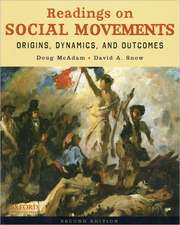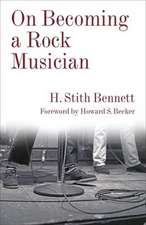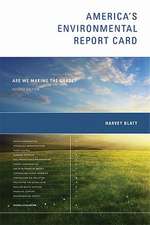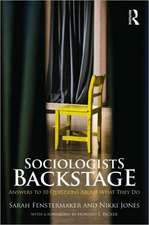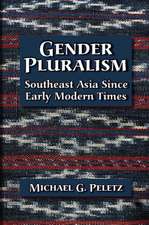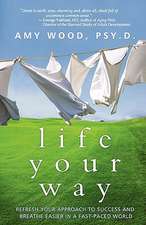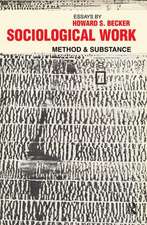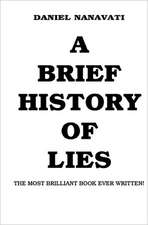Evidence
Autor Howard S. Beckeren Limba Engleză Paperback – 20 iul 2017
Howard S. Becker is a master of his discipline. His reputation as a teacher, as well as a sociologist, is supported by his best-selling quartet of sociological guidebooks: Writing for Social Scientists, Tricks of the Trade, Telling About Society, and What About Mozart? What About Murder? It turns out that the master sociologist has yet one more trick up his sleeve—a fifth guidebook, Evidence.
Becker has for seventy years been mulling over the problem of evidence. He argues that social scientists don’t take questions about the usefulness of their data as evidence for their ideas seriously enough. For example, researchers have long used the occupation of a person’s father as evidence of the family’s social class, but studies have shown this to be a flawed measure—for one thing, a lot of people answer that question too vaguely to make the reasoning plausible. The book is filled with examples like this, and Becker uses them to expose a series of errors, suggesting ways to avoid them, or even to turn them into research topics in their own right. He argues strongly that because no data-gathering method produces totally reliable information, a big part of the research job consists of getting rid of error. Readers will find Becker’s newest guidebook a valuable tool, useful for social scientists of every variety.
Becker has for seventy years been mulling over the problem of evidence. He argues that social scientists don’t take questions about the usefulness of their data as evidence for their ideas seriously enough. For example, researchers have long used the occupation of a person’s father as evidence of the family’s social class, but studies have shown this to be a flawed measure—for one thing, a lot of people answer that question too vaguely to make the reasoning plausible. The book is filled with examples like this, and Becker uses them to expose a series of errors, suggesting ways to avoid them, or even to turn them into research topics in their own right. He argues strongly that because no data-gathering method produces totally reliable information, a big part of the research job consists of getting rid of error. Readers will find Becker’s newest guidebook a valuable tool, useful for social scientists of every variety.
Preț: 146.97 lei
Nou
Puncte Express: 220
Preț estimativ în valută:
28.13€ • 29.26$ • 23.22£
28.13€ • 29.26$ • 23.22£
Carte disponibilă
Livrare economică 24 martie-07 aprilie
Livrare express 08-14 martie pentru 23.74 lei
Preluare comenzi: 021 569.72.76
Specificații
ISBN-13: 9780226466378
ISBN-10: 022646637X
Pagini: 240
Ilustrații: 2 tables
Dimensiuni: 152 x 229 x 20 mm
Greutate: 0.36 kg
Ediția:1
Editura: University of Chicago Press
Colecția University of Chicago Press
ISBN-10: 022646637X
Pagini: 240
Ilustrații: 2 tables
Dimensiuni: 152 x 229 x 20 mm
Greutate: 0.36 kg
Ediția:1
Editura: University of Chicago Press
Colecția University of Chicago Press
Notă biografică
Howard S. Becker is the author of several books, including Writing for Social Scientists, Telling About Society, Tricks of the Trade, and, most recently, What About Mozart? What About Murder? He lives and works in San Francisco.
Cuprins
Acknowledgments
Part 1. What It’s All About: Data, Evidence, and Ideas
1. Models of Inquiry: Some Historical Background
2. Ideas, Opinions, and Evidence
3. How the Natural Scientists Do It
Part 2. Who Collects the Data and How Do They Do It?
4. Censuses
5. Data Gathered by Government Employees to Document Their Work
6. Hired Hands and Nonscientist Data Gatherers
7. Chief Investigators and Their Helpers
8. Inaccuracies in Qualitative Research
Afterword: Final Thoughts
References
Index
Part 1. What It’s All About: Data, Evidence, and Ideas
1. Models of Inquiry: Some Historical Background
2. Ideas, Opinions, and Evidence
3. How the Natural Scientists Do It
Part 2. Who Collects the Data and How Do They Do It?
4. Censuses
5. Data Gathered by Government Employees to Document Their Work
6. Hired Hands and Nonscientist Data Gatherers
7. Chief Investigators and Their Helpers
8. Inaccuracies in Qualitative Research
Afterword: Final Thoughts
References
Index
Recenzii
"Evidence is thoughtful account on how to do social science research and should be read by those who engage in such work. Becker shows the importance of thinking about the practical aspects of methodology in collecting data and transforming it into evidence. In a world of fake news and anti-vaccination rhetoric, there is no timelier book than Evidence to show us how to think through these and other issues."
“With Evidence, Becker has written another must-read book for students and experienced sociologists, as well as also for all of those who do not yet understand how and why the sociology is a real science.”

